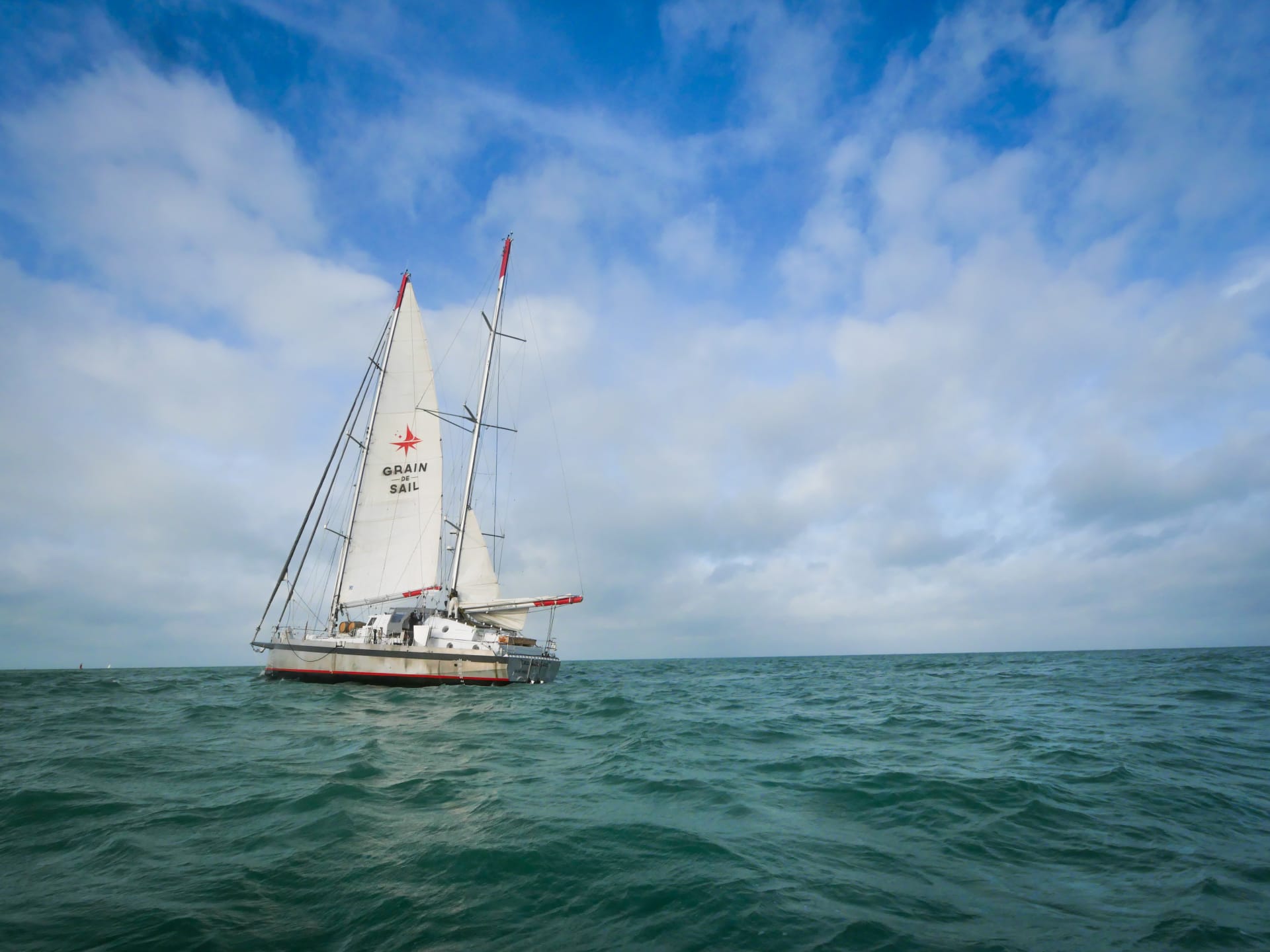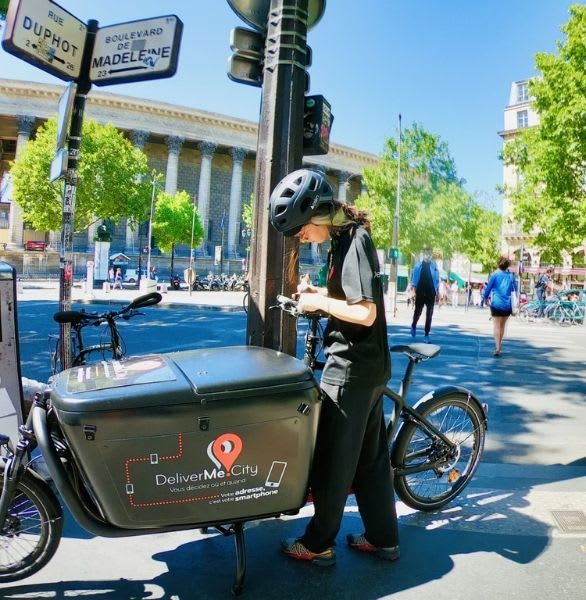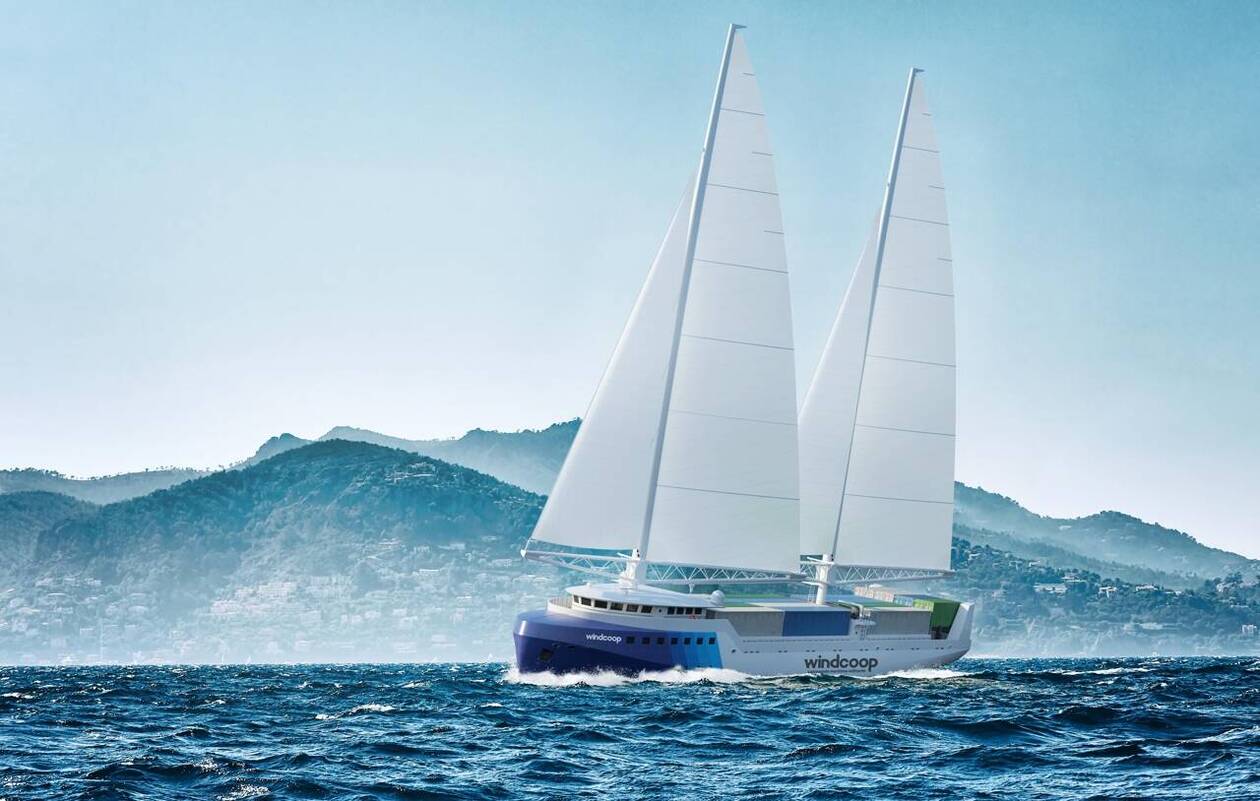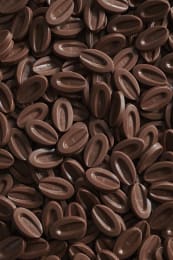Transport management
Valrhona joins forces with Fret 21
FRET 21 is an initiative aiming to reduce greenhouse gas emissions in the freight transport sector. It encourages the use of more environmentally-friendly modes of transport and raises awareness of the importance of sustainability among the freight industry. In 2022, Valrhona renewed its commitment to this initiative for a further 3 years. The company is involved in a number of initiatives aimed at reducing emissions by several hundred tons of CO2. The company signs up to 11 actions under this initiative, the aim of which is to reduce emissions by 949 tonnes of CO2, i.e. a 13% reduction in GHG emissions over the period 2022-2024.

Actions focused on 4 main areas:
- Reducing carbon footprint in the last miles (thanks in particular to deliveries by bicycle or electric vehicle)
- Reducing airborne emissions (by controlling our shipments to subsidiaries)
- CO2 Target LABEL (give preference to carriers with the CO2 Target label)
- Experimentation with alternative, less polluting means of transport such as sailboats, biofuel trucks, etc.
Reducing the last km carbon footprint bicycle delivery in Paris
In urban environments, the last few miles are often more polluting because they are characterized by short journeys, frequent stops, traffic jams, and trying to find parking spaces. All this adds up to unnecessary traffic and higher fuel consumption. A large proportion of Valrhona’s business customers are located in city centers.

Valrhona has chosen DELIVERME CITY as its partner to meet this challenge. This carrier delivers to Parisian customers using electric cargo bikes. A 100% carbon-free and responsible solution as the delivery drivers are all company employees.
A few facts and figures for 2023
Over 6,500 orders delivered by bike in Paris, i.e. 520 kilograms of CO2 saved, the equivalent of 3,000 kilometers of car travel avoided. The intention is to extend the scope to Lyon and Marseille in 2024, given the success of the Paris experiment.
Valrhona air scorecard between 2013 and 2023:
+ 2.35% airborne emissions In order to minimize its environmental footprint, Valrhona always gives priority to land and sea transport. Numerous teams are working to reduce air freight, in particular through better order planning. However, it is also important for Valrhona to ensure customer satisfaction. In some cases, doing this requires air transport when delivery deadlines are too short.
Testing alternative means of transport
This is important to test new modes of transport. For example, we have tested shipping a pallet of finished products across the Atlantic by sailboat for the first time. The quantity transported wasn’t large, but the aim was to make links with suppliers able to offer new means of transport for our goods in the future.

So that we can take the next step in our approach, along with Norohy, we have decided in 2023 to become members of Windcoop. Windcoop is the first citizen-led cooperative to transport goods by sailboat. We have invested €300,000 in building a cargo sailboat with the ambition of bringing 100% of our Madagascan cocoa and vanilla to the port of Marseille by 2026.
The objective: 100% of cocoa beans delivered by sail, saving around 900 tonnes of CO2, i.e. the equivalent of 900 Paris/New York round trips by plane. This initiative is expected to reduce GHG emissions from maritime transport by 60%.


